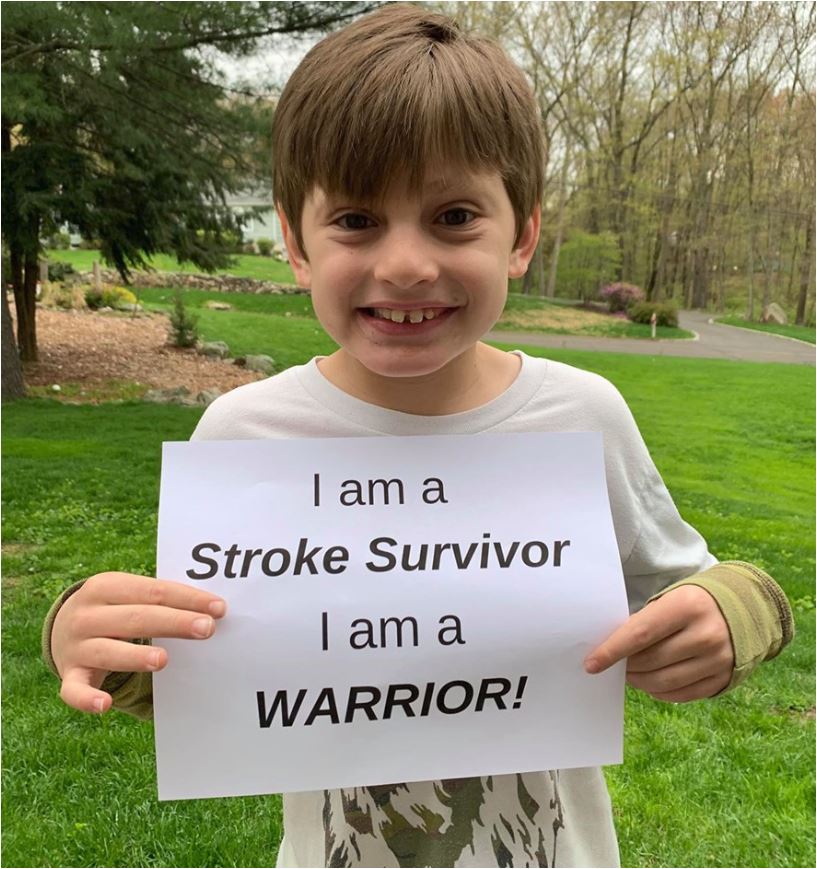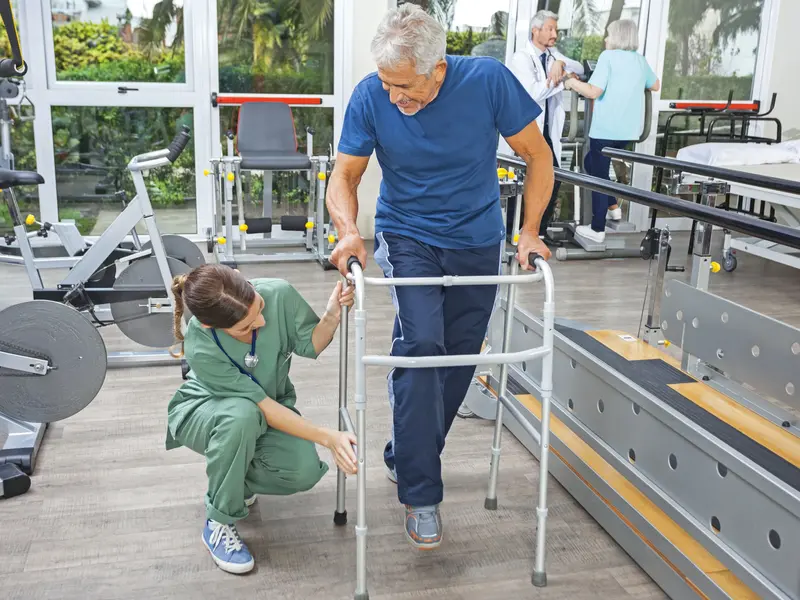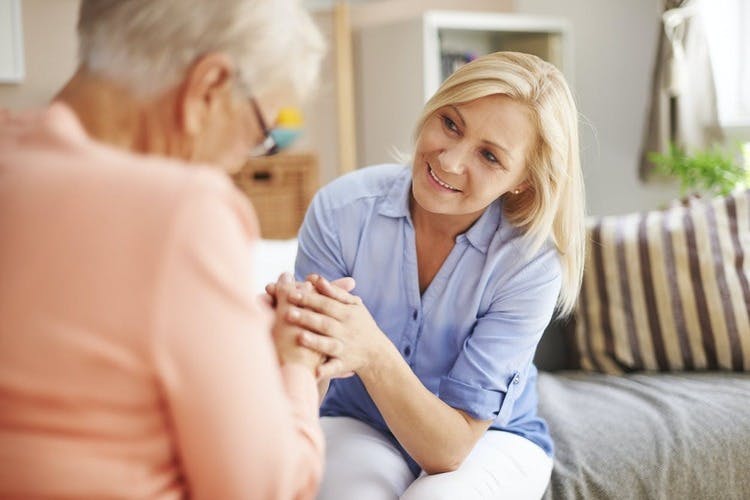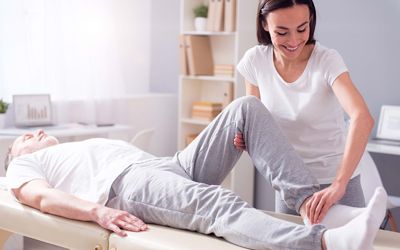Stroke is a significant health concern in Australia, with devastating consequences for the affected individuals and their families.
 More than 445,000 Australians live with the effects of stroke (The Australian Institute of Health and Welfare). The economic burden of stroke is also substantial, amounting to $6.2 billion in direct financial costs and an additional $26 billion in premature mortality and lost wellbeing due to short and long-term disability (Deloitte 2020). Strokes can happen at any age too - from childhood through to senior years.
More than 445,000 Australians live with the effects of stroke (The Australian Institute of Health and Welfare). The economic burden of stroke is also substantial, amounting to $6.2 billion in direct financial costs and an additional $26 billion in premature mortality and lost wellbeing due to short and long-term disability (Deloitte 2020). Strokes can happen at any age too - from childhood through to senior years.
While much attention is given to the acute phase of stroke care, including the critical hours and days following the event and the hospital admission period, there is a growing recognition that post-hospitalisation rehabilitation and support are equally vital. SchemeWise disability, aged care and rehabilitation services aim to support people in the months or years after a stroke when individuals are back in their communities, striving to regain independence and functionality.
With extensive training in the management of neurological conditions, SchemeWise support coordinators, case managers, therapists and community nurses are highly skilled at crafting and delivering home support programs. The comprehensive strategies they can prove deal with the acute and chronic symptoms of stroke, as well as delivering ongoing education to the person and their families (e.g. functional, lifestyle, and health support needs).
aaa
Changes after stroke
 There can be a vast number of changes which occur to physical, thinking, cognitive and personality aspects within a person. Some may not be present, some may be very small or minor, while others can have life altering consequences. It is most important to remember that stroke is an injury of the brain and rehabilitation is possible, taking time, but often people recover much or a majority of previous functioning. Some common changes early include:
There can be a vast number of changes which occur to physical, thinking, cognitive and personality aspects within a person. Some may not be present, some may be very small or minor, while others can have life altering consequences. It is most important to remember that stroke is an injury of the brain and rehabilitation is possible, taking time, but often people recover much or a majority of previous functioning. Some common changes early include:
* speech problems and/or word-finding/language/writing problems
* upper or lower limb problems (or a whole side of the body effected)
* problems thinking, or with memory (often remembering new things or take medications)
* coordination and balance problems (walking, falls risks, etc)
* changes in mood and energy levels (e.g. could become depressed, or requires more frequent rests or sleep)
* changes in bladder and bowel (or both)
* changes in personality or behaviour (e.g. aggressive, or be more impulsive)
* change in senses (e.g. sight or hearing problems, or other sensations such as limb placement in space)
* issues with problem-solving, directed thinking, or understanding dangers or intent of others
* in rare cases, brain damage which results in intellectual changes or problems with internal body functions (hormones / organs)
(Learn more about strokes, and associated problems at the Stroke Foundation)
aaa
The Importance of Rehab at Home
 Rehabilitation after a stroke plays a pivotal role in maximising recovery and improving the quality of life for stroke survivors. Traditional approaches to rehabilitation often involve in-patient care or attending outpatient facilities as first steps. However, these programs are only designed to support immediate recovery. An emerging and increasingly effective approach is community-based and ongoing rehab, at home. Likewise, ensuring care and support needs are met on discharge back home, and into the future too, enables and integrated and adaptive approach to functional change as recovery, occurs.
Rehabilitation after a stroke plays a pivotal role in maximising recovery and improving the quality of life for stroke survivors. Traditional approaches to rehabilitation often involve in-patient care or attending outpatient facilities as first steps. However, these programs are only designed to support immediate recovery. An emerging and increasingly effective approach is community-based and ongoing rehab, at home. Likewise, ensuring care and support needs are met on discharge back home, and into the future too, enables and integrated and adaptive approach to functional change as recovery, occurs.
Rehabilitation and support at home is the provision of rehabilitation services after the acute phase of a stroke event, in the comfort of the individual’s home environment. This approach aims to kickstart “life, work and family” recovery processes early, preventing secondary health complications and family strain. Likewise, ongoing rehab at home refers to the continuation of rehabilitation efforts, facilitating delivery of goal-based and personalised care and support as people reintegrate into their communities and personal interests.
aaa
Benefits of Home-Based Stroke Support
1. Personalised Support: Home-based support allows the person to tailor their individual needs based on the unique challenges they face, after stroke. Person-centred and goal-orientated approaches enhance the effectiveness of the rehabilitation process, targeting specific areas that require attention, such as mobility, strength, balance, coordination, health and therapy needs, plus daily living needs or adaptive equipment.
2. Familiar Environment: The home is a familiar and comfortable space, reducing the anxiety and stress associated with adapting to clinical settings; and facilitating adaption to familiar surroundings and supports. Being in a familiar environment can also improve motivation and engagement during therapy sessions and with support planning needs (after all most peoples needs in a clinical hospital setting are different to their needs at home - because what works in one location can provide unfamiliar and difficult in another after stroke).
3. Increased Independence: By focusing on activities of daily living, home-based rehabilitation after stroke helps people regain functional independence. The ultimate goal is to enable people to perform essential tasks on their own, enhancing their self-esteem and reducing reliance on caregivers or services; or if required, living as independently as possible with planned supports in place.
4. Family Involvement: Family members play a crucial role in the recovery journey after stroke. In a home, family members can actively participate in therapy sessions, learn proper techniques to assist their loved ones, and provide ongoing support beyond scheduled therapy or nursing support visits. Community nurses can also help family members learn how to provide support and care reducing service intrusions.
5. Cost-Effectiveness: Home-based support services can be more cost-effective overall. By reducing the length of time to access supports, it helps lower the overall healthcare costs associated with stroke rehabilitation, improves motivation, and a good plan to transition home means being able to leave hospital earlier too (saving associated hospital costs).

aaa
Types of Home-based supports
Person’s living with stroke may need a few, some or many of the following supports for a short or longer period of time. Remember, everyone’s needs will be different depending on the area where a stroke occurred in the brain, what type of stroke happened, and any damage to the brain and its structures:
* Physiotherapy
* Occupational Therapy
* Community /Rehabilitation Nursing
* Rehabilitation Counselling (this is a service focused on vocational or life skills)
* Support Coordination/Case management
* Speech-Language Therapy
* Nutritional Care
* Counselling and/or spiritual support (incl family support/education)
* Recreational therapy
* Psychologist / Psychiatrist / Neurologist / Gerontologist
* Support Groups or Services (in home, day programs, social programs, community participation, etc)
aaa
Building for successful recovery
The success of immediate and ongoing rehab at home relies on a collaborative approach between your therapists, community nurse, NDIS support coordinator, case manager, medical professionals, family/caregivers, and person’s living with stroke.
Stroke rehabilitation can be hard work, and take time But people who’ve been there will tell you it’s well worth it. Think about some things that will help keep you motivated and make the most of your rehabilitation time and supports. Motivators are the reasons you push to achieve your goals. (Examples: I want to attend my daughter’s wedding. I want to work in my garden. I want to go back to my job or finish school.)
aaa
Supports and services
 SchemeWise utilises a person-centred process to active and plan with people toward their rehabilitation and recovery from stroke. Five essential steps occur with services and support planning, and use.
SchemeWise utilises a person-centred process to active and plan with people toward their rehabilitation and recovery from stroke. Five essential steps occur with services and support planning, and use.
1. Comprehensive Assessment: The journey begins with a support coordination/case manager, therapist or community nursing assessment (some or all may be necessary). This assessment helps identify the specific impairments and functional limitations for the person at that time, serving as the baseline for designing a personalised rehabilitation support plan.
2. Goal Setting: Setting realistic and achievable goals is essential for tracking progress, maintaining motivation, and staying safe at home. SchemeWise service/s, will work closely with the person and their families, to establish short-term and long-term goals that align with the individual’s aspirations and abilities. If a person has temporarily lost legal capacity we can help with arrangements for others to act on a person’s behalf, and within the NDIS too (if not already in place).
3. Functional Support: The core of all rehab plans after stroke is a customised program based on the functional movement deficits or cognitive changes (or both), that have resulted from a stroke. Any planning or interventions or supports may focus on improving strength, balance, flexibility, coordination, tone control, cognition and thinking, problem-solving, assistance with health or medication administration, personal care, or supportive services design and access.
4. Adaptive Equipment and Assistive Devices: Depending on the individual’s requirements, a therapist may be recommended and training necessary to use adaptive equipment and assistive devices to enhance independence and safety. Community nurses and support coordinators/case managers can help people access the right therapist for equipment and adaptive scripting. SchemeWise also offers therapist services too.
5. Regular check-ins/review: Regular monitoring, follow-up and re-adjustment are crucial to adaptive support programs - tracking changes in a person’s progress and needs toward service adaptions over time too (e.g. more or less or different kinds of services planning). Regular communication between disability/aged care supports, nursing, allied-health agents and the person’s medical team ensures that any issues or changes are promptly addressed. As necessary, SchemeWise will also assist reporting to relevant schemes to assist future planning needs too.
 Immediate and ongoing rehab at home using a person-centred, goal-orientated planning approach represents a transformative option to stroke rehabilitation. By placing the focus on the months and years following a stroke event, SchemeWise services empower individuals to regain their independence, rebuild their lives, and reintegrate into their communities and/or work. The collaboration between SchemeWise nurses, therapists, coordinators, case managers (as relevant), and medical healthcare professionals, caregivers, and people living with stroke, is the key to a successful and holistic model for rehabilitation and personal empowerment.
Immediate and ongoing rehab at home using a person-centred, goal-orientated planning approach represents a transformative option to stroke rehabilitation. By placing the focus on the months and years following a stroke event, SchemeWise services empower individuals to regain their independence, rebuild their lives, and reintegrate into their communities and/or work. The collaboration between SchemeWise nurses, therapists, coordinators, case managers (as relevant), and medical healthcare professionals, caregivers, and people living with stroke, is the key to a successful and holistic model for rehabilitation and personal empowerment.
At SchemeWise, we continue to deliver person-centred and high-quality home-based support services, so we can move closer to a future where people living with stroke, are better equipped to overcome the challenges of any associated disability, and live their best lives. If you think our quality-assured services could help you or a loved one, please reach out for a confidential and obligation free chat. We welcome the opportunity to meet and discuss how our services can support people, after stroke, and do so on a free-of-charge basis (2 hours max).
aaa
If you think we could help you, please get in contact today.

Support coordinators / case managers / hospitals, please use our referral forms (at top menu)
aaa
aaa
